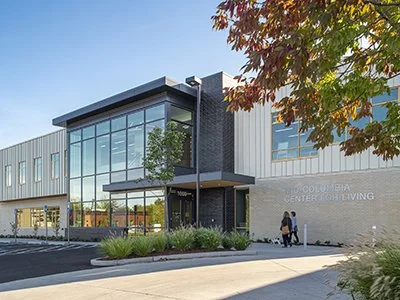Mid-Columbia Center for Living Reduces Crisis Services Due to Staffing Shortage
Mid-Columbia Center for Living, located at 1060 Webber St, The Dalles provides a full array of outpatient mental health and substance use disorder services, including mobile crisis response for community members who are experiencing a behavioral health crisis.
By Cole Goodwin
The Dalles, OR, September 26, 2023 – As of Sept. 7th, Mid-Columbia Center for Living (MCCFL), which provides a state certified Community Mental Health Program on behalf of Wasco, Hood River, and Sherman Counties has temporarily scaled back its crisis services due to the statewide staffing shortage.
MCCFL has temporarily halted some after business hours and holiday crisis response services to specific non-community based partners. The affected locations are:
Providence Hood River Memorial Hospital
Adventist Health Columbia Gorge
Northern Oregon Corrections (NORCOR) booked inmates. MCCFL will still conduct pre-booking evaluations for Director's Initiated Custody 24/7 at NORCOR.
It’s worth noting that Oregon Administrative Rule (OAR 309-019-0150)) requires that all counties have two-person mobile crisis intervention teams available 24 hours a day, 7 days a week, to provide an in-person response. As such some MCCFL crisis services will remain unchanged.
“Anyone who is in need, or who is worried about a loved one, friend, or family member can pick up the phone and reach out for help from MCCFL 24 hours a day, 7 days a week,” said Jaime Preston, MCCFL Deputy Director.
Any community member can call MCCFL’s 24/7 crisis hotline by dialing: (888) 877-9147.
Family members, concerned neighbors and business owners can call the same number and are also encouraged to contact Oregon’s 988 suicide prevention call center 24 hours a day, 7 days a week. 988 is a national behavioral health crisis response system that will route callers back to local resources as appropriate.
Those in need of services in the gorge can also check out the Gorge Resource Guide.
Understaffed and Overworked
A letter from MCCFL detailed the reason for the changes to crisis services:
“We have a core group of committed hard working mobile crisis responders who have worked tirelessly since the dawn of the pandemic in order to assure individuals experiencing a behavioral health crisis have the statutorily required support they need 24 hours a day and 7 days per week. All of these afterhours crisis staff (including myself, our leadership and mainly Manager Misty Lacy) have existing full time 'day jobs' at MCCFL and have been covering afterhours above and beyond what we can reasonably, safely and sustainably expect of professional staff.”
Statewide Staffing Shortage Continues
There is currently a shortage of behavioral health workers to meet the current demand for services in Oregon.
Part of this has been attributed to the significant barriers facing those who want a career in mental and behavioral health. Expensive schooling, high cost of living, and low pay are among the top barriers to entering the field. In addition once employed many soon find themselves hurled head long into stressful work environments which can be both mentally and emotionally challenging.
The lack of monetary incentives for mental and behavioral healthcare workers is a serious problem in Oregon, which is one of the U.S.’s worst ranked states in terms of mental illness prevalence and access to care. According to the CDC in 2021, Oregon had 889 deaths due to suicide and Washington had 1,229.
Screenshot of a map by Mental Health America which shows the highest and lowest ranks states in terms of mental health care access and prevalence of mental illness in 2022. Oregon was ranked 49 out of 51, making it one of the worst ranked states in the nation.


